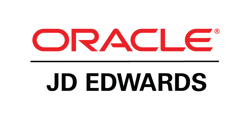The transportation management plays a key role in organizations' supply chain processes, helping to connect customers and suppliers so that they can meet their delivery commitments. For this reason, it is a highly information-demanding industry, where transportation management technology is crucial.
Integrated Transportation Management as a Logistics Strategy
Transportation management has become one of the fundamental processes within the business logistics strategy. In addition to being a key element in the integration of the different areas of logistics processes: procurement, manufacturing, warehousing, distribution and customer service, it can contribute a large part of the final cost of the product. The efficiency of supply chain management is nowadays identified by customers as a differentiating factor.
Defining transportation strategies in logistics
What processes should be undertaken when defining a strategy for integrated transport management? The following are the main ones:
- Analysis of goods flows: location of manufacturing and distribution plants, main delivery points, and delivery constraints (date restrictions, expiration dates, volumes, etc.).
- Definition of tenders: Where the criteria for selecting carriers are standardized and weighted. Definition of KPIs for process performance evaluation.
- Selection of carriers: having several carriers to be weighted, implementation of tools that facilitate online simulation based on destination and quantity. With this, we achieve a simplification and homogeneity of the tariff model.
- Invoice forecasting and matching: negotiation of a model with suppliers that allows anticipating and pre-invoicing the expenses incurred and passing on to the supplier the verification of the same.
Transportation Management Optimization
Technological tools, such as transportation management software, optimize operations and reduce costs.
For example, within the technology we can find the ERP software JD Edwards, which in its version 9.2 allows the management of Incoterms in both sales orders and purchases, through the logistics module. Incoterms are terms to define the tasks, costs, risks and responsibilities between buyer and seller, in addition to transportation and logistics management in the transaction.
In JD Edwards there is the option of predetermining the default Incoterm to be applied to the customer or supplier and, as a result of this application, determine the logistics costs of the operation.
In addition, JD Edwards provides route suggestions based on the most optimal and efficient routes, according to the hierarchy of preferences, logistics operator, KM and dates configured. You can find more information in our related articles or by contacting us.
Why Neteris
At Neteris we count on a group of professionals to offer the best solutions and the best system of integrated transport management system. Ask us for more information to learn more about how we work and take your company one step further.
 Propuesta de valor
Propuesta de valor